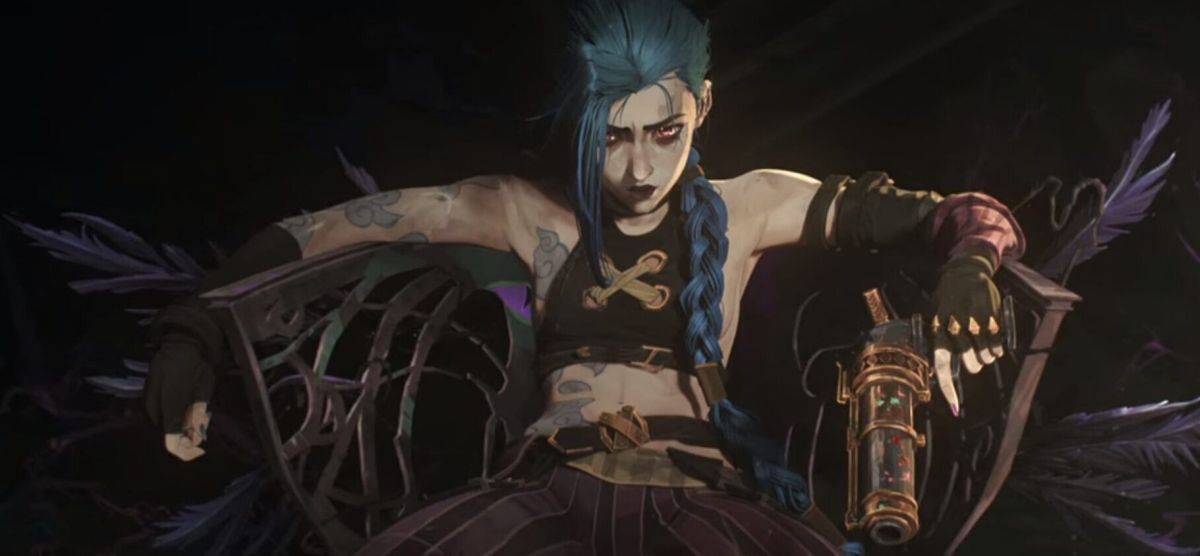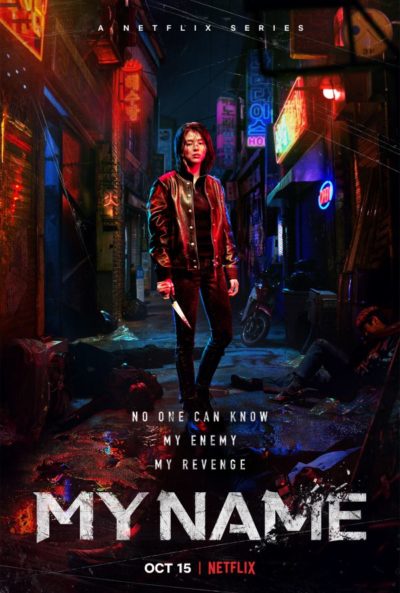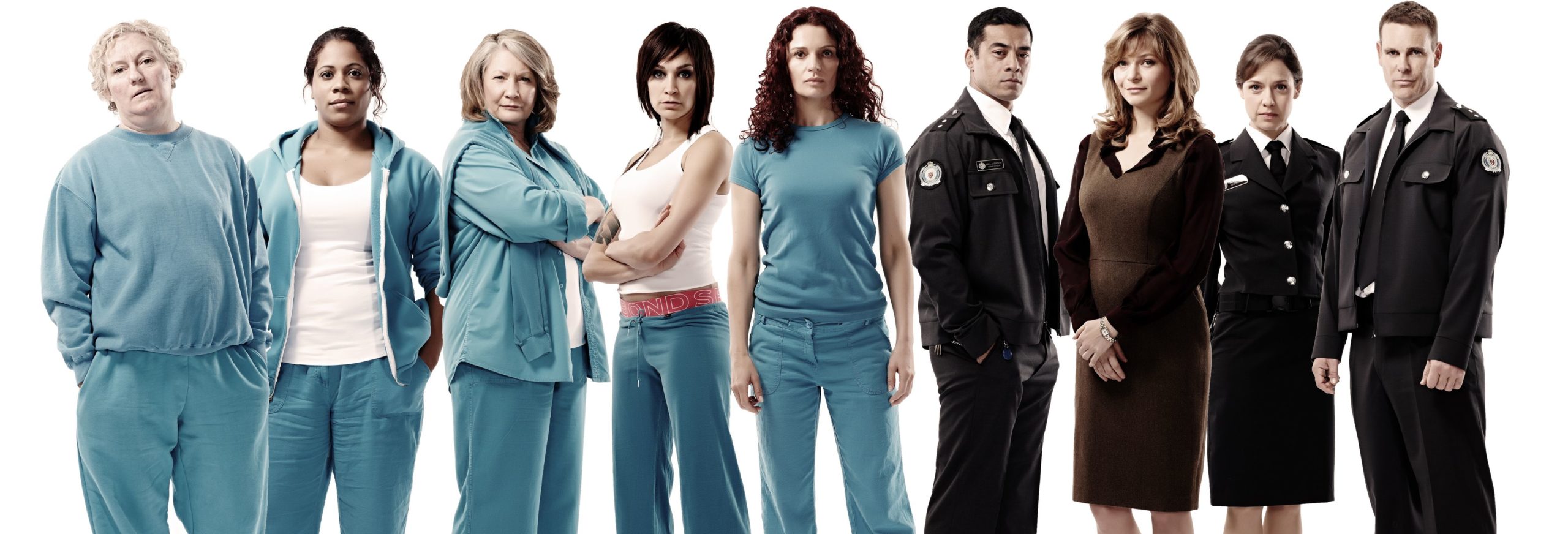 ★★★★
★★★★
“Sheilas behind bars.”
 Back in the eighties, there was an Australian women-in-prison soap opera called Prisoner Cell Block H. [It was called Prisoner on its home turf, but was renamed in the UK and US, to avoid confusion with The Prisoner] It ran for eight seasons, totalling 692 (!) episodes, and achieved a fair bit of cult status, mostly through late-night screenings on TV. Much of its reputation was based on “so bad it’s good” elements, such as the wobbly sets; a review calls it, “one of the most bizarre, violent, lesbian-fetishy-heart-warming dramas ever created.” The show concluded its run in 1986, but was never forgotten.
Back in the eighties, there was an Australian women-in-prison soap opera called Prisoner Cell Block H. [It was called Prisoner on its home turf, but was renamed in the UK and US, to avoid confusion with The Prisoner] It ran for eight seasons, totalling 692 (!) episodes, and achieved a fair bit of cult status, mostly through late-night screenings on TV. Much of its reputation was based on “so bad it’s good” elements, such as the wobbly sets; a review calls it, “one of the most bizarre, violent, lesbian-fetishy-heart-warming dramas ever created.” The show concluded its run in 1986, but was never forgotten.
More than 25 years later, the concept was rebooted in 2013 as Wentworth, and enjoyed a renaissance. While also running for eight seasons, rather than trash (not that there’s anything wrong with that, mind you!), this version proved to be remarkably well made. It likely helped that the remake’s production schedule here was rather less frantic, ending at exactly 100 episodes last October. The show is currently ranked by the IMDb in the top 250 TV series of all time, and was sold to over 90 countries, achieving a worldwide audience, thanks in part to its distribution on streaming services like Netflix and Amazon Prime.
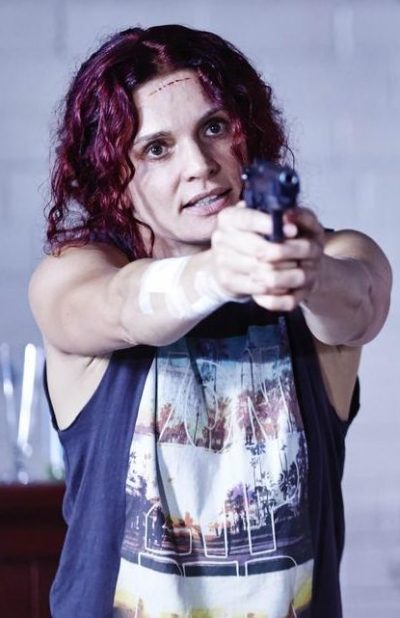 It spawned local remakes in a number of countries. The Dutch was the most successful, running for four seasons, but Belgium, Germany and Turkey also took the show and recreated it. [Here is as good a place as any to mention that back in 1982, there was a male spin-off of the original show called Punishment. Though it lasted only one season, the cast included some guy called Mel Gibson…] Indeed, the Turkish one, known on Netflix as The Yard, was reviewed here in August 2020. That review began, “I really must get round to reviewing Wentworth.” And eighteen months later, here we are…
It spawned local remakes in a number of countries. The Dutch was the most successful, running for four seasons, but Belgium, Germany and Turkey also took the show and recreated it. [Here is as good a place as any to mention that back in 1982, there was a male spin-off of the original show called Punishment. Though it lasted only one season, the cast included some guy called Mel Gibson…] Indeed, the Turkish one, known on Netflix as The Yard, was reviewed here in August 2020. That review began, “I really must get round to reviewing Wentworth.” And eighteen months later, here we are…
It’s a show I’ve thought about covering on a number of occasions over its run, but now that it’s finished, I feel I can finally do it justice. I definitely can’t argue with the acclaim it has received. For Wentworth features a slew of extremely strong female characters, including one of the most memorable villainesses in TV history, and maintained a high degree of dramatic quality from beginning to end. That’s rare for a series; even classics like Buffy dropped off after a certain point, with commercial motivations typically surpassing artistic ones. Not so here, with the eighth series virtually as strong as the first.
One element, which it does share with its predecessor, is that the setting is the “star”, rather than any performer. I think this certainly helped contribute to its longevity, and sustained the show’s freshness. If one of the actresses began to feel jaded, and wanted out, their character could be replaced by another. The prison scenario meant there were always new arrivals potentially coming in, and scope for departures too, without excessively disrupting the overall structure. If you look at many of the ultra-long running shows, e.g. Dr Who or the many incarnations of Law and Order, they have a similar ability to rotate their cast seamlessly.
Not to say there weren’t main characters – many of them with the names and/or backgrounds as their “ancestors” in Cell Block H. But they tended to have arcs across three or four years; few lasted the full eight, mostly on the guard side. This timeframes was long enough to allow for fulfilling development, without getting stale. The first such was Bea Smith (Cormack), who arrives at Wentworth after attempting to murder her husband, following years of abuse. She becomes involved in the struggle for “Top Dog” status – the role of the most powerful prisoner – between two existing inmates, only to end up becoming Top Dog herself. However, it’s a lonely position, where you always have to watch your back, and allies can suddenly become enemies.
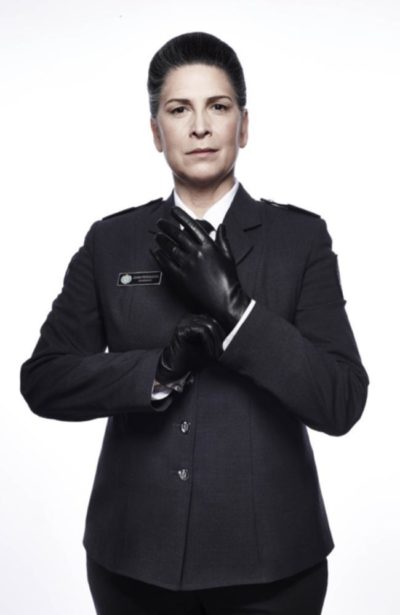 One such was the character mentioned above: Joan Ferguson (Rabe), known as ‘The Freak’ (left). She joined the show as the new governor of Wentworth in season 2, and was, to be blunt, a clinical psychopath, devoid of empathy and incredibly manipulative. She was also very smart, a lethal combination. However, it’s not enough to save her from ending up a prisoner in the jail herself. The first episode of season 5, where Ferguson is released into the general population was, for me, peak Wentworth, and one of the best 45 minutes of television I’ve seen, in any genre.
One such was the character mentioned above: Joan Ferguson (Rabe), known as ‘The Freak’ (left). She joined the show as the new governor of Wentworth in season 2, and was, to be blunt, a clinical psychopath, devoid of empathy and incredibly manipulative. She was also very smart, a lethal combination. However, it’s not enough to save her from ending up a prisoner in the jail herself. The first episode of season 5, where Ferguson is released into the general population was, for me, peak Wentworth, and one of the best 45 minutes of television I’ve seen, in any genre.
Remarkably, she didn’t just survive this reversal of fortune, but thrived. She took over as Top Dog. until an escape plan misfired, ending in her being buried alive by long-serving prison officer Will Jackson (Robbie Magasiva)). But you can’t keep a good villainess down, though it appeared the trauma led to amnesia, with Ferguson subsequently using a different name and with a completely different personality. Was this genuine, or another of her ruses? I couldn’t possibly reveal that. What I will do though, is laud a glorious performance by Rabe, who at six feet tall, has a remarkable physical presence, backed up by ferocious intensity. She’s Cersei Lannister on steroids. And without the incest.
In general, it’s perhaps less exploitative than you might expect, with nudity only when genuinely necessary to the plot, rather than for titillation purposes. On the other hand, the show does not soft-pedal the brutality of prison life, with violence and death a common occurrence. Inmates tend to handle their own infractions internally, the Top Dog having the ability to impose punishments for theft, deceit or, perhaps the worst offense of all, “lagging” i.e. talking to prison authorities. It would definitely be rated a hard R, purely for its authentically no-holds barred language. Boy, do the Aussies love themselves a good c-bomb – even more than us Scots!
There were, admittedly, times where the story-lines seemed to get away from the creators. A few threads did appear to be ended, rather than properly resolved. But considering the 70+ hours of television the show represented, such misfires proved remarkably few. The writers definitely had a talent for juggling multiple plot threads and keeping them all moving forward simultaneously. In the end though, it was the actresses (and actors) who made this show what it was, and which kept us coming back for the best part of a decade. If not our favourite show ever on Netflix, it’s definitely up there with the very best.
Creators: Lara Radulovich and David Hannam
Star: Danielle Cormack, Pamela Rabe, Kate Atkinson, Katrina Milosevic
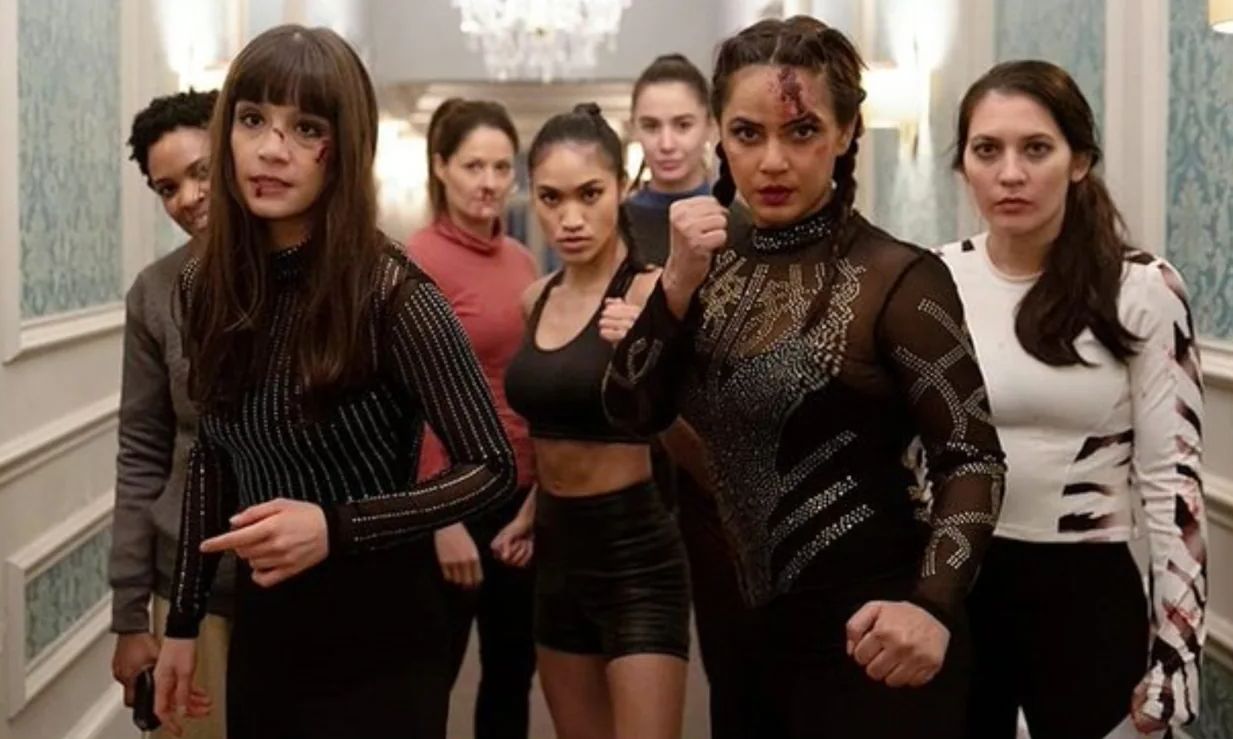 Madison isn’t without an action pedigree, having directed rather good short, The Gate, starring site favourite Amy Johnston. That’s currently being shopped around to become a feature; fingers crossed that happens. In the meantime, this would appear to match its predecessors in being competent, yet entirely generic. Everything unfolds exactly as you would expect, if you’re at all familiar with this kind of thing. It’s the kind of film where you can pop into the kitchen for 10 minutes without pausing it, make a sandwich and a cup of coffee, and return, safe in the knowledge that you’ll still be able to follow the plot perfectly well. I can neither confirm nor deny having done exactly that.
Madison isn’t without an action pedigree, having directed rather good short, The Gate, starring site favourite Amy Johnston. That’s currently being shopped around to become a feature; fingers crossed that happens. In the meantime, this would appear to match its predecessors in being competent, yet entirely generic. Everything unfolds exactly as you would expect, if you’re at all familiar with this kind of thing. It’s the kind of film where you can pop into the kitchen for 10 minutes without pausing it, make a sandwich and a cup of coffee, and return, safe in the knowledge that you’ll still be able to follow the plot perfectly well. I can neither confirm nor deny having done exactly that.




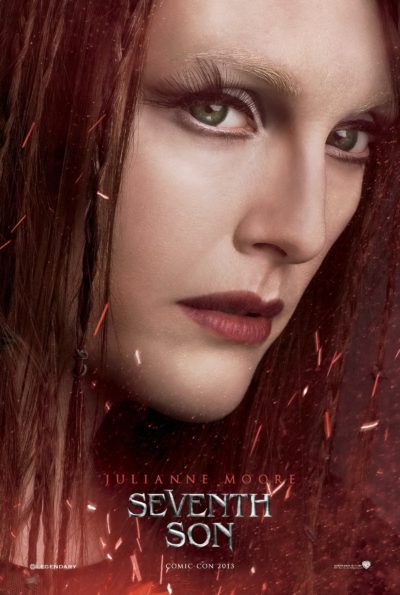 Despite generally terrible reviews, this is definitely not, by any means, a terrible movie. It is, admittedly, a fairly generic sword-and-sorcery flick, in which a hero must rise from a common background to save the world from a terrible magical threat. But it looks spiffy – the hundred million dollar budget is on the screen. If the central performance has its issues, there’s enough around the fringes to make both for an adequately entertaining experience, and also merit the existence of a review here. In particular, the main antagonist is the evil witch Mother Malkin (Moore). She escapes from the prison to which she had been confined years ago by Gregory (Bridges), now the last survivor of his order of witch-hunters.
Despite generally terrible reviews, this is definitely not, by any means, a terrible movie. It is, admittedly, a fairly generic sword-and-sorcery flick, in which a hero must rise from a common background to save the world from a terrible magical threat. But it looks spiffy – the hundred million dollar budget is on the screen. If the central performance has its issues, there’s enough around the fringes to make both for an adequately entertaining experience, and also merit the existence of a review here. In particular, the main antagonist is the evil witch Mother Malkin (Moore). She escapes from the prison to which she had been confined years ago by Gregory (Bridges), now the last survivor of his order of witch-hunters.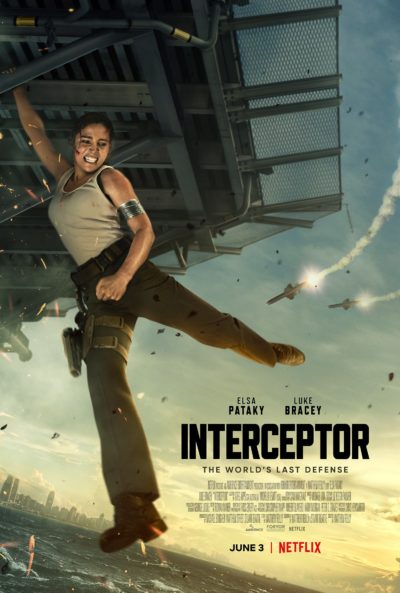 Two minutes in, Chris turned to me and said, “Is this an Asylum movie?” Oh, that she had been right, for the net results might have been more entertaining. This is truly the dumbest film I have seen in a very long time. It feels like a throwback in content to about thirty years ago, except with a script that makes your average Cannon product look like Citizen Kane. It’s set on a missile interceptor station in the middle of the Pacific, to which Captain J. J. Collins (Pataky) has just been assigned again. Barely has she dropped her bags off in her cabin, when word comes that their sister base in Alaska has gone dark, and terrorists have stolen 16 Russian ICBMs. Before you can say “shitty Die Hard knockoff”, trust-fund kid Alexander Kessel (Bracey) shows up, intent on removing America’s last line of defense. It’s up to J.J. and plucky SigInt guy Rahul Shah (Mehta) to prevent them – or the terrorists will have won, literally.
Two minutes in, Chris turned to me and said, “Is this an Asylum movie?” Oh, that she had been right, for the net results might have been more entertaining. This is truly the dumbest film I have seen in a very long time. It feels like a throwback in content to about thirty years ago, except with a script that makes your average Cannon product look like Citizen Kane. It’s set on a missile interceptor station in the middle of the Pacific, to which Captain J. J. Collins (Pataky) has just been assigned again. Barely has she dropped her bags off in her cabin, when word comes that their sister base in Alaska has gone dark, and terrorists have stolen 16 Russian ICBMs. Before you can say “shitty Die Hard knockoff”, trust-fund kid Alexander Kessel (Bracey) shows up, intent on removing America’s last line of defense. It’s up to J.J. and plucky SigInt guy Rahul Shah (Mehta) to prevent them – or the terrorists will have won, literally. 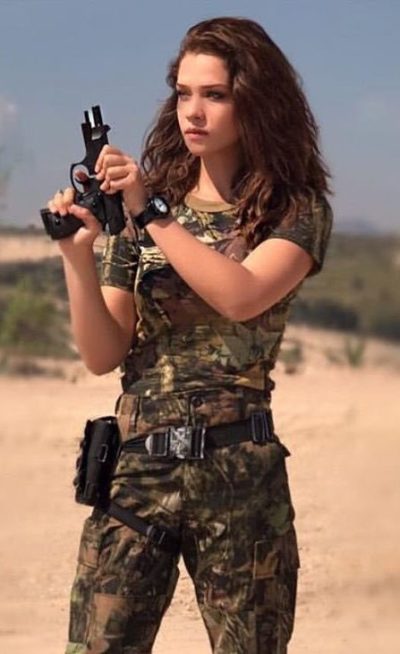 Halfway through the final installment, Chris came in. She paused, watching for a moment, then said, “They spend far too much time talking, and not enough time killing.” Just a shame she waited 93 episodes to express so succinctly one of the main problems with the series. For, even if the final arc had its share of bloodshed, if you average it out per show, it’s about the level of a mid-strength nosebleed. It certainly put the novela into narconovela. Though the problems began at the start – or, rather, the end of the second series where heroine Sara Aguilar was apparently gunned down. This being a show where escape from death was common, I spent the first 20 episodes waiting for her to return. Spoiler: she doesn’t.
Halfway through the final installment, Chris came in. She paused, watching for a moment, then said, “They spend far too much time talking, and not enough time killing.” Just a shame she waited 93 episodes to express so succinctly one of the main problems with the series. For, even if the final arc had its share of bloodshed, if you average it out per show, it’s about the level of a mid-strength nosebleed. It certainly put the novela into narconovela. Though the problems began at the start – or, rather, the end of the second series where heroine Sara Aguilar was apparently gunned down. This being a show where escape from death was common, I spent the first 20 episodes waiting for her to return. Spoiler: she doesn’t.
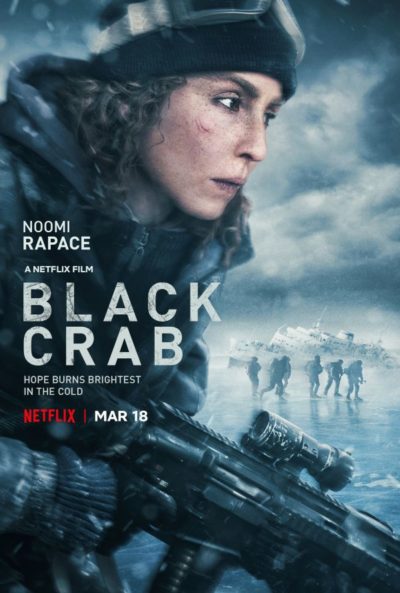 Rapace seems to be turning into a female version of Ryan Reynolds. By which I mean, it seems that hardly a month goes past without a new Netflix Original coming out starring her. Ryan had 6 Underground, Red Notice and The Adam Project. Noomi has given us
Rapace seems to be turning into a female version of Ryan Reynolds. By which I mean, it seems that hardly a month goes past without a new Netflix Original coming out starring her. Ryan had 6 Underground, Red Notice and The Adam Project. Noomi has given us  ★★★★
★★★★ Back in the eighties, there was an Australian women-in-prison soap opera called Prisoner Cell Block H. [It was called Prisoner on its home turf, but was renamed in the UK and US, to avoid confusion with The Prisoner] It ran for eight seasons, totalling 692 (!) episodes, and achieved a fair bit of cult status, mostly through late-night screenings on TV. Much of its reputation was based on “so bad it’s good” elements, such as the wobbly sets; a
Back in the eighties, there was an Australian women-in-prison soap opera called Prisoner Cell Block H. [It was called Prisoner on its home turf, but was renamed in the UK and US, to avoid confusion with The Prisoner] It ran for eight seasons, totalling 692 (!) episodes, and achieved a fair bit of cult status, mostly through late-night screenings on TV. Much of its reputation was based on “so bad it’s good” elements, such as the wobbly sets; a  It spawned local remakes in a number of countries. The Dutch was the most successful, running for four seasons, but Belgium, Germany and Turkey also took the show and recreated it. [Here is as good a place as any to mention that back in 1982, there was a male spin-off of the original show called Punishment. Though it lasted only one season, the cast included some guy called Mel Gibson…] Indeed, the Turkish one, known on Netflix as The Yard, was
It spawned local remakes in a number of countries. The Dutch was the most successful, running for four seasons, but Belgium, Germany and Turkey also took the show and recreated it. [Here is as good a place as any to mention that back in 1982, there was a male spin-off of the original show called Punishment. Though it lasted only one season, the cast included some guy called Mel Gibson…] Indeed, the Turkish one, known on Netflix as The Yard, was  One such was the character mentioned above: Joan Ferguson (Rabe), known as ‘The Freak’ (left). She joined the show as the new governor of Wentworth in season 2, and was, to be blunt, a clinical psychopath, devoid of empathy and incredibly manipulative. She was also very smart, a lethal combination. However, it’s not enough to save her from ending up a prisoner in the jail herself. The first episode of season 5, where Ferguson is released into the general population was, for me, peak Wentworth, and one of the best 45 minutes of television I’ve seen, in any genre.
One such was the character mentioned above: Joan Ferguson (Rabe), known as ‘The Freak’ (left). She joined the show as the new governor of Wentworth in season 2, and was, to be blunt, a clinical psychopath, devoid of empathy and incredibly manipulative. She was also very smart, a lethal combination. However, it’s not enough to save her from ending up a prisoner in the jail herself. The first episode of season 5, where Ferguson is released into the general population was, for me, peak Wentworth, and one of the best 45 minutes of television I’ve seen, in any genre.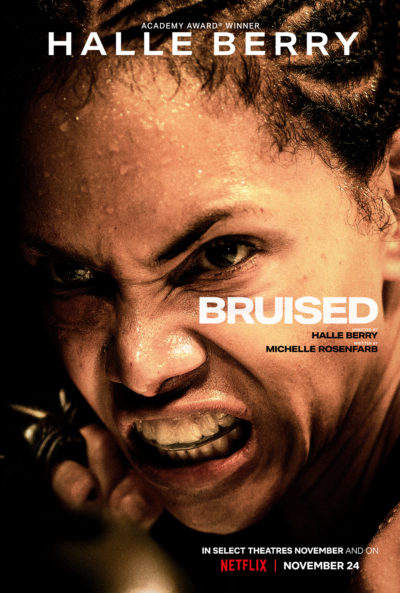 Halle Berry was born the same year I was. There is, however, just one of us that is capable of convincingly playing the role of a mixed martial artist. To give you another yardstick, the lead in this was originally going to go to Mrs. Ryan Reynolds, Blake Lively (
Halle Berry was born the same year I was. There is, however, just one of us that is capable of convincingly playing the role of a mixed martial artist. To give you another yardstick, the lead in this was originally going to go to Mrs. Ryan Reynolds, Blake Lively ( I’ve never played League of Legends, but the good news is, you don’t need to, in order to enjoy Arcane. While that may provide some extra depth, it works perfectly well on its own. There is a degree of over-familiarity with the high-level scenario, which is Generic Fantasy Plot #3. Per Wikipedia’s premise, “Amidst the escalating unrest between the advanced, utopian city of Piltover and the squalid, repressed undercity of Zaun…” Yeah, it’s class war time again, cut from the same basic stamp as
I’ve never played League of Legends, but the good news is, you don’t need to, in order to enjoy Arcane. While that may provide some extra depth, it works perfectly well on its own. There is a degree of over-familiarity with the high-level scenario, which is Generic Fantasy Plot #3. Per Wikipedia’s premise, “Amidst the escalating unrest between the advanced, utopian city of Piltover and the squalid, repressed undercity of Zaun…” Yeah, it’s class war time again, cut from the same basic stamp as 